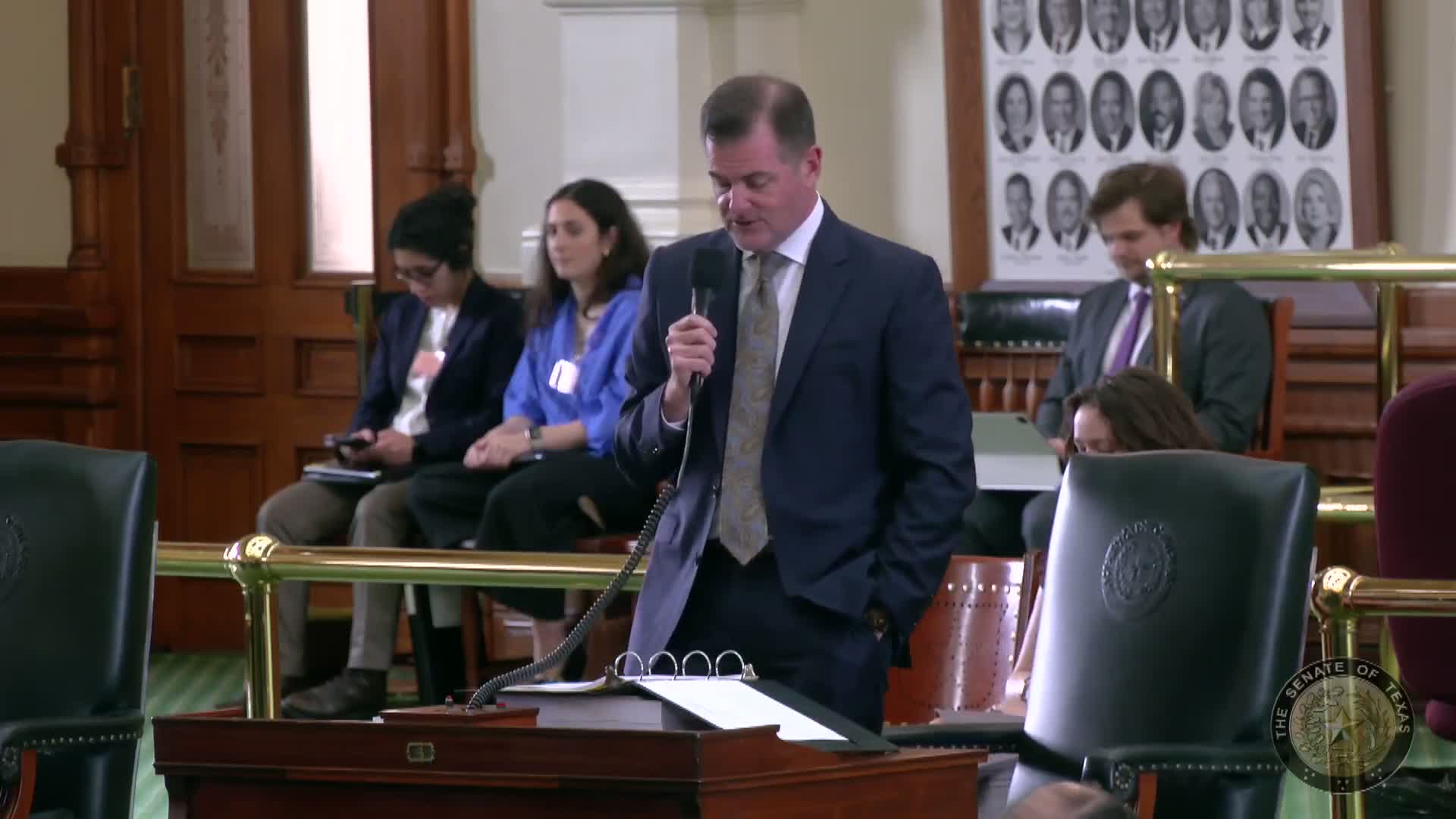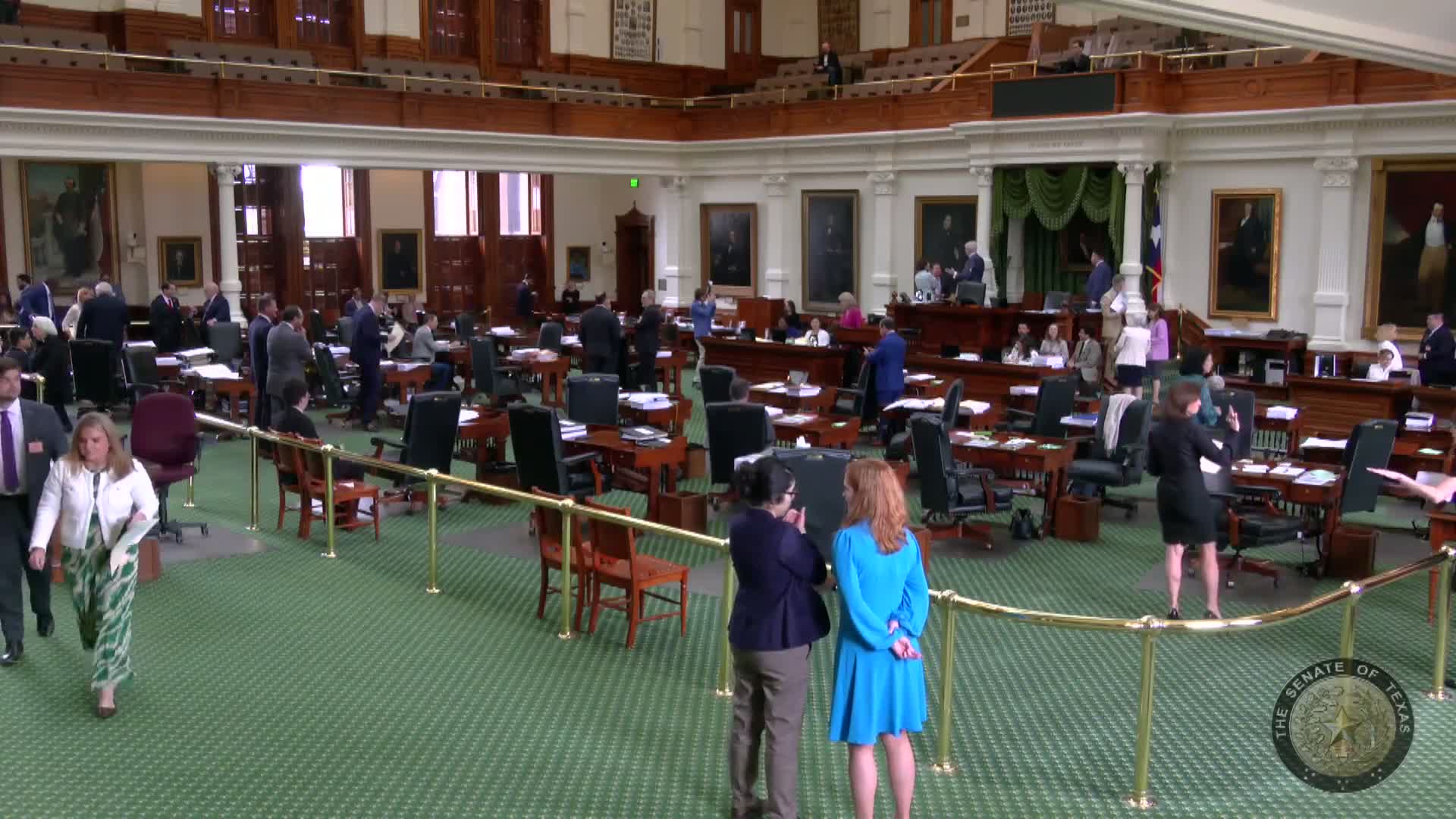Article not found
This article is no longer available. But don't worry—we've gathered other articles that discuss the same topic.

Senate adopts conference report on parental‑rights school bill; debate centers on gender‑identity rules, clubs and grievance process

Senate adopts $2026–27 budget with big boosts for K‑12, property tax relief and long‑term care

